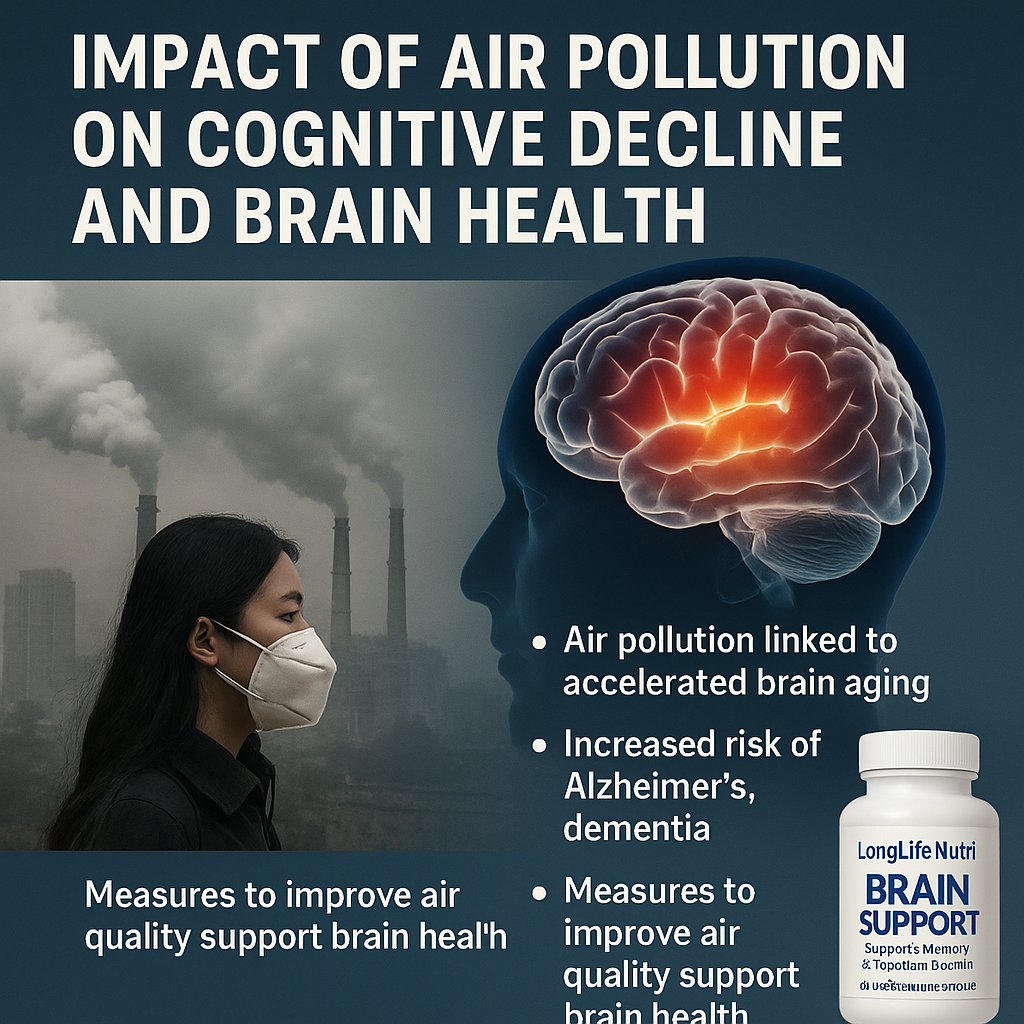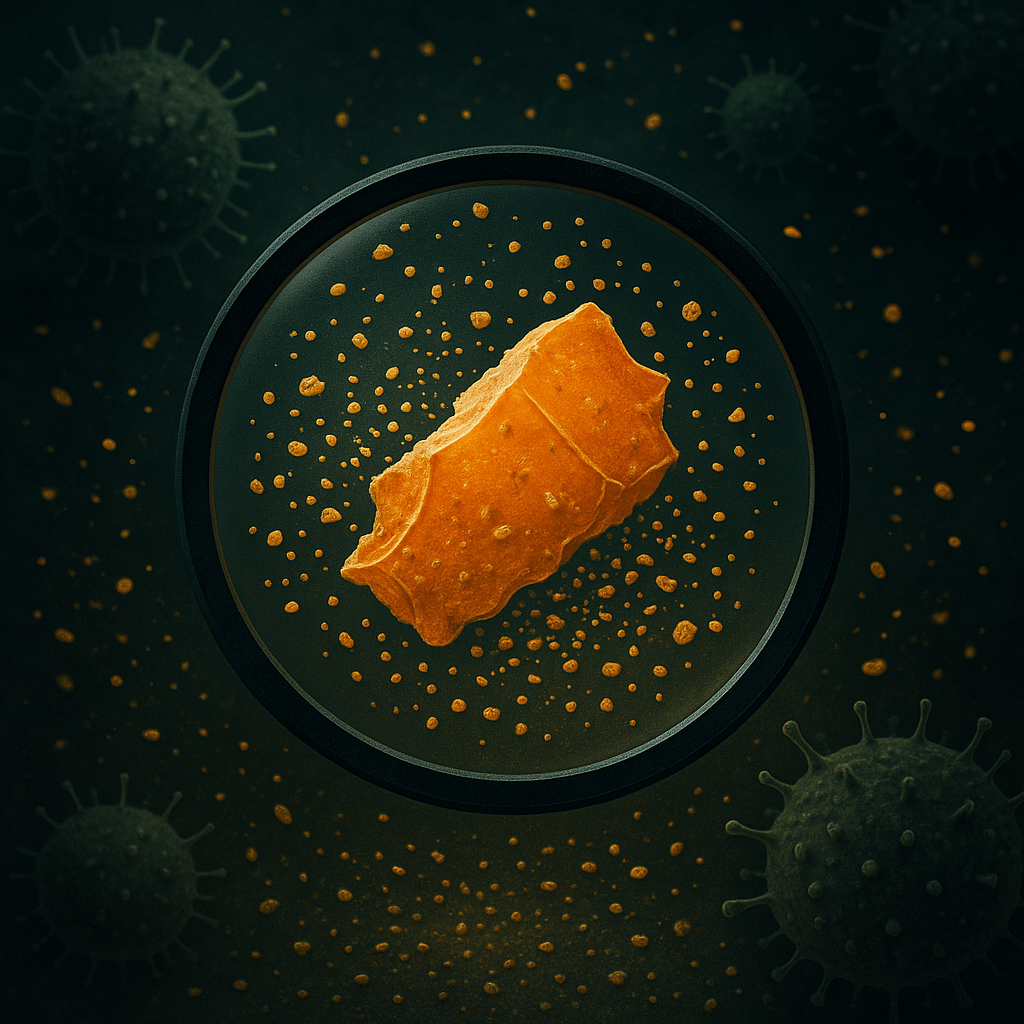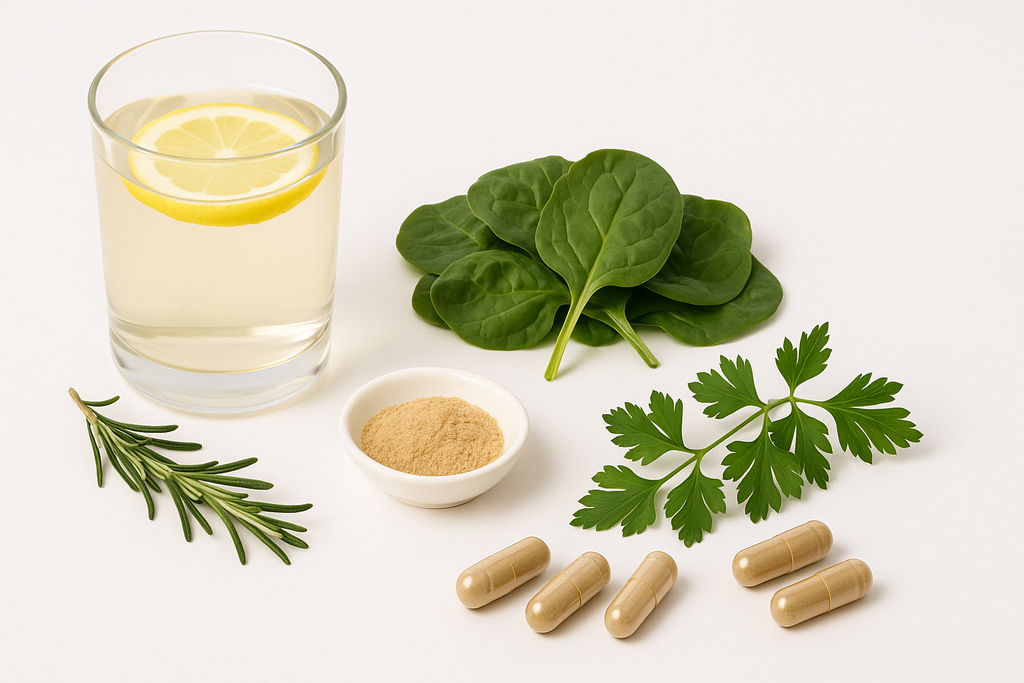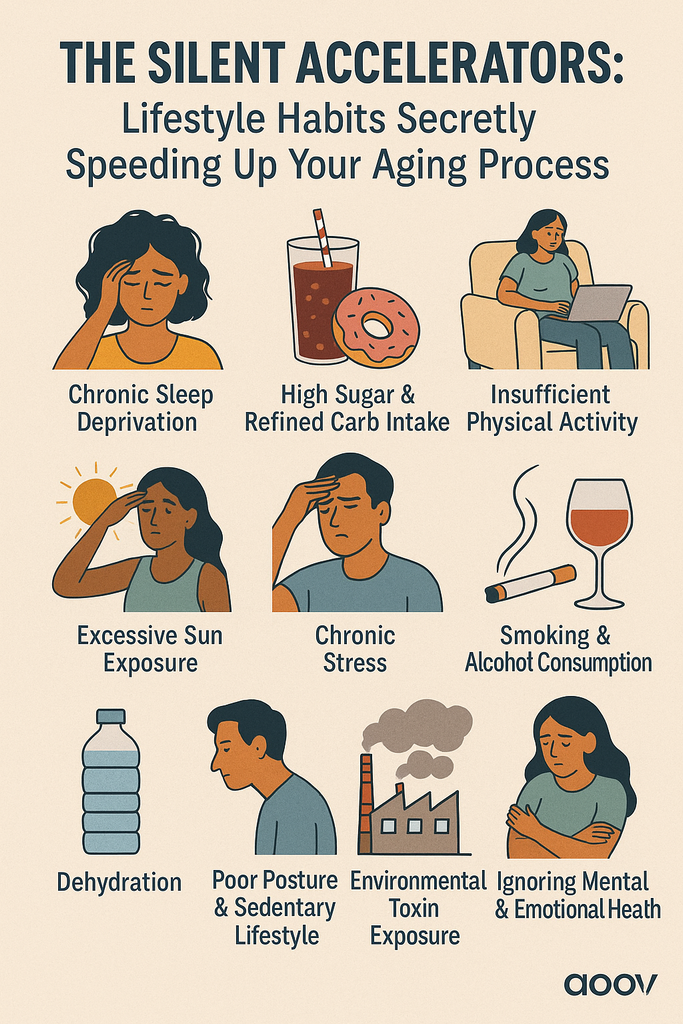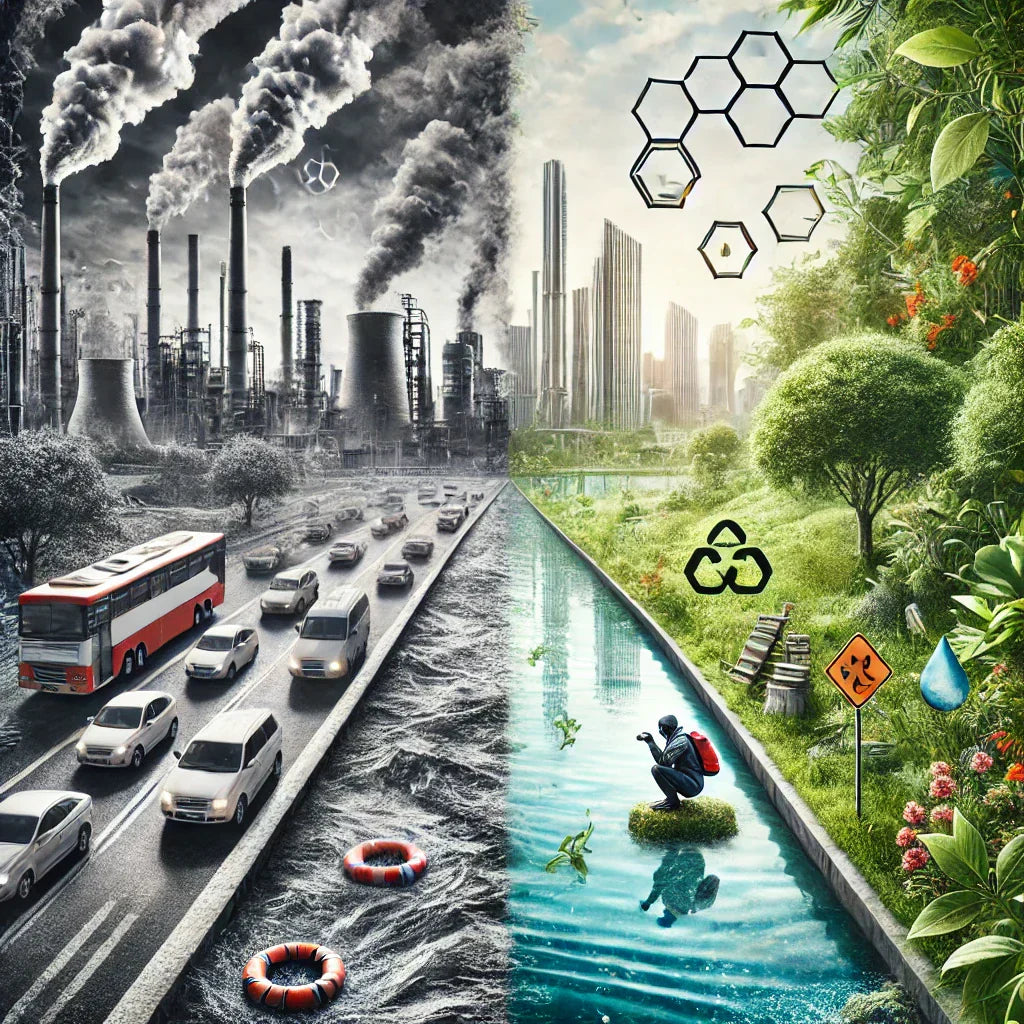News — environmental toxins
Air Pollution and Cognitive Decline: Protecting Brain Health from Environmental Damage
air pollution air quality Alzheimer's disease brain health brain supplements children's brain development clean air cognitive decline dementia risk environmental toxins inflammation memory loss mental health neurodegeneration neurotoxicity oxidative stress PM2.5 pollution and IQ public health urban pollution
We often think of air pollution in terms of respiratory issues and environmental damage, but emerging research is painting a much more alarming picture. Our brains—once thought to be insulated from airborne toxins—are now recognized as vulnerable targets of chronic exposure to polluted air. The fine particulate matter that clogs our skies may also be silently eroding cognitive function and accelerating the onset of neurodegenerative diseases.
This growing body of evidence is a wake-up call: the impact of air pollution on brain health is real, measurable, and deeply concerning. From subtle declines in memory to heightened risks for Alzheimer’s and Parkinson’s, long-term exposure to polluted air is now considered a major, modifiable risk factor for cognitive decline. As we examine the science behind this invisible threat, one thing becomes clear—we need to start treating air quality not just as an environmental issue, but as a critical public health priority.
The Tiny Threat: Decoding the Health Impacts of Microplastics
blood microplastics BPA alternatives brain barrier toxins chronic inflammation clean water filters endocrine disruptors environmental toxins gut microbiome health effects of microplastics inhalation of microplastics microbeads microplastics microplastics and cancer microplastics in humans plastic in food plastic pollution plastic waste pollution health risks reduce microplastic exposure synthetic clothing
They’re in your water, your food, and even the air you breathe—yet you can’t see them with the naked eye. Microplastics, the tiny fragments of plastic less than 5 millimeters long, have quietly infiltrated every corner of the planet, including the human body. Once considered a pollution issue for oceans and wildlife, microplastics are now raising alarms in the realm of human health.
With growing research linking microplastics to inflammation, endocrine disruption, and potential long-term health effects, the question is no longer if we're exposed—but how it’s impacting us. This comprehensive guide breaks down the science, explores where these particles come from, and offers practical steps to reduce your exposure to this modern-day invisible threat.
The Detox Dilemma: How Environmental Toxins Complicate Your Recovery
chemical sensitivity chronic illness recovery daily detox routine detox support detox symptoms endocrine disruptors environmental toxins glutathione heavy metal detox holistic healing immune system toxins liver detox liver health mold exposure natural detox neurotoxins recovery and toxins supplements for detox toxin buildup toxin overload
From polluted air and pesticide-laced food to plastics and heavy metals, environmental toxins are nearly impossible to avoid in modern life. Yet, while our bodies are built to handle a certain toxic load, today’s environment is pushing those limits—and it's affecting more than just physical health. For anyone on a healing journey, whether from chronic illness, burnout, or addiction, these unseen toxins may quietly sabotage your progress.
Environmental toxins aren’t just “bad” for you—they interfere with your body’s natural repair systems. They disrupt hormones, suppress immunity, damage mitochondria, and overload the liver, making it harder to detox, recover, and thrive. In this guide, we’ll explore what these toxins are, how they accumulate, and why they complicate recovery for so many. Most importantly, we’ll share practical strategies to support your body’s detox pathways and help you heal in a toxic world.
The Silent Accelerators: Lifestyle Habits Secretly Speeding Up Your Aging Process
aging myths aging prevention aging process anti-aging strategies chronic inflammation dehydration environmental toxins health and wellness healthy aging lifestyle habits mental health oxidative stress physical activity premature aging skincare sleep deprivation stress management sugar and aging sun exposure youthful lifestyle
Aging is a natural process we all face, but how fast we age—and how gracefully we do it—often depends on factors well within our control. While genetics play a role, our daily choices can either protect us from premature aging or quietly push the fast-forward button on the clock. The surprising truth is that many common lifestyle habits, often considered harmless or even beneficial, may be silently accelerating the aging process without us realizing it.
By identifying these silent accelerators and making informed adjustments, it's possible to slow down the wear and tear on your body, preserve your vitality, and enjoy a longer, healthier life. In this article, we'll uncover the hidden habits that contribute to premature aging and provide actionable tips to help you stay youthful inside and out.
The Environmental Threat: How Toxins Affect Our Health and What We Can Do
chemical exposure detoxification eco-friendly lifestyle environmental health environmental threat environmental toxins pollution reducing toxins sustainable living toxic substances toxins and health
Our modern environment is filled with various toxins—from air and water pollutants to chemicals in household products—that can have significant impacts on our health. Understanding how these toxins affect our well-being and learning practical ways to reduce exposure is essential for living a healthier, more sustainable life.
This article explores the science behind environmental toxins, their effects on our bodies, and actionable steps you can take to protect yourself and your loved ones.

